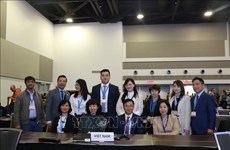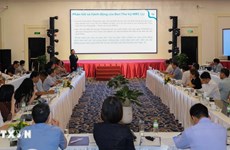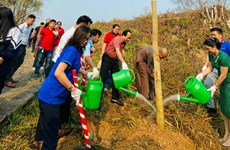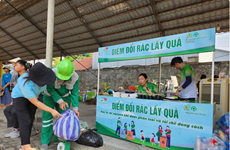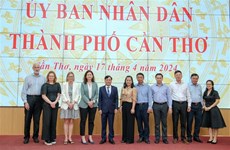Workshop advocates plastic recycling networking
A workshop held in Ho Chi Minh City on May 23 highlighted the need for countries around the world to participate in regional and global plastic recycling networks.
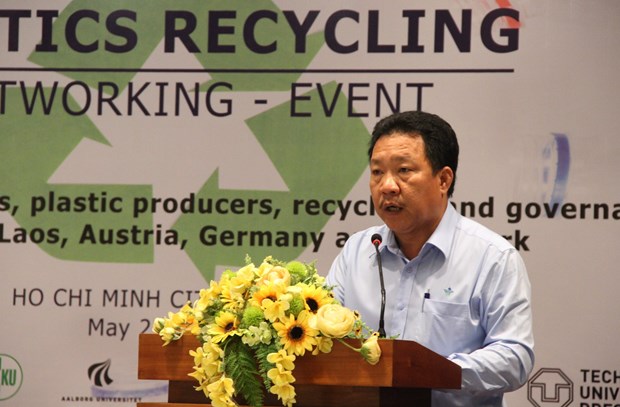 Bui Trong Hieu, Chairman of the HCM City Urban Environment Co. Ltd, speaks at the workshop in Ho Chi Minh City on May 23 (Photo: VNA)
Bui Trong Hieu, Chairman of the HCM City Urban Environment Co. Ltd, speaks at the workshop in Ho Chi Minh City on May 23 (Photo: VNA)HCM City (VNA) – A workshop held in Ho Chi Minh City on May 23 highlighted the need for countries around the world to participate in regional and global plastic recycling networks.
Bui Trong Hieu, Chairman of the HCM City Urban Environment Co. Ltd, said plastic waste and plastic pollution are urgent environmental problems in the world. In HCM City, about 1,800 out of 8,900 tonnes of household waste released each day is plastic, only 200 tonnes of which is recycled, with the rest buried with other types of solid waste, he said.
Hieu said the city is pushing ahead with solutions to minimise plastic pollution, including stepping up the research and use of plastic waste recycling technologies.
Another important solution is to learn from other countries’ experience and take part in regional and global plastic recycling networks, he added.
Prof. Dr. Stefan Salhofer from Vienna-based University of Natural Resources and Life Sciences said a project named SEA-Plastic-Edu has been carried out to improve education on plastic recycling in Vietnam and Laos. It was funded by the European Community Action Scheme for the Mobility of University Students Plus (ERASMUS ).
Implemented from October 2017 to October 2020, it gathers 10 members which are universities and industrial partners in Vietnam, Laos, Denmark, Germany and Austria. The Industrial University of HCM City is the Vietnamese party in this project.
The project holds training courses on plastic recycling for businesses, lecturers and students and support the creation of safe and environmentally friendly plastic products.
Assoc. Prof. Dr. Le Hung Anh from the Industrial University of HCM City cited statistics as showing that Vietnam is the world’s fourth biggest plastic waste polluter, following China, Indonesia and the Philippines.
According to a recent survey on the Sai Gon River, there are up to 172,000 – 519,000 microplastic fibres and 10 – 233 microplastic debris per cubic metre of water, indicating the river’s water is highly polluted with plastic.
Prof. Dr. Christina Dornark from Germany’s Dresden University of Technology proposed Vietnam and Laos boost plastic recycling solutions, import suitable plastic products and limit imports of plastic waste as materials for production.
The two countries should also work with international organisations to acquire modern solutions and equipment to ensure safe and environmentally friendly recycling, he said.-VNA








